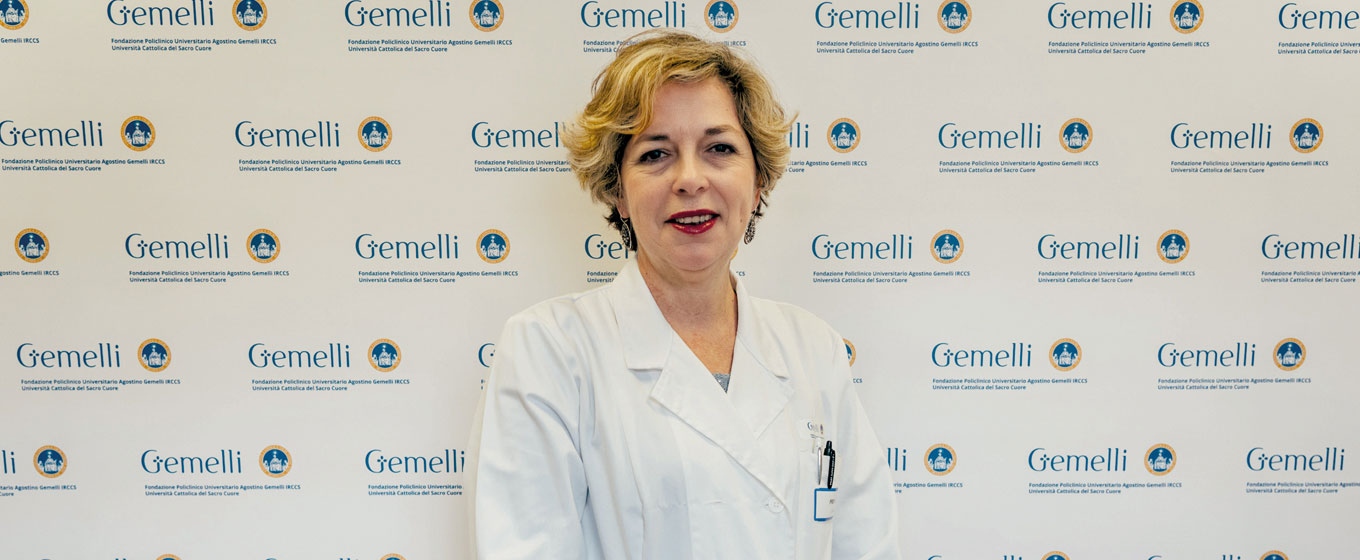Leading the Future of Medicine: Innovation, Technology, and Imapct

How will innovations in personalised medicine revolutionise patient care over the next decade?
Personalised medicine is transforming healthcare through AI-driven diagnostics, advanced imaging, and cutting-edge technology. Professor Evis Sala explores how these innovations enhance patient care, improve efficiency, and bridge the gap between rapid advancements and regulation. At Università Cattolica, she is pioneering medical education and research, equipping future doctors with the skills to integrate AI and personalised medicine into clinical practice. As technology evolves, today’s medical students will drive the next revolution in patient-centred care.
Professor Evis Sala’s journey into medicine began with a childhood curiosity for understanding people and problem-solving. Initially pursuing a PhD in Epidemiology and Biostatistics her career took a decisive turn toward radiology after a transformative experience in Cambridge, exploring early forms of artificial intelligence in medical data. Inspired by a pioneering female radiologist and propelled by the challenges of the Albanian Civil War, Professor Sala embraced radiology, finding a path that merged innovation with clinical excellence. Her story highlights a personal and professional evolution deeply shaped by resilience, mentorship, and an unwavering commitment to advancing patient care.
Could you share some of the challenges you have faced as a pioneer in your field?
One of the biggest challenges is overcoming resistance to change and innovation, especially in traditional systems like Italy’s healthcare. Being a woman with international experience can feel isolating, but it is also empowering. I have learned to draw confidence from the obstacles I’ve faced.
How do you balance being a professor, a researcher and a practitioner while also innovating in your area?
Multitasking in medicine is a learned skill, but trust in your team is key. Delegation, leadership, and mentorship are essential. If my team members excel beyond me, I’ve done my job well.
What unique opportunities do you think Università Cattolica provides students who are interested in innovative medical technology?
We have taken time to develop information and communication technologies that are tied to AI and innovation. We meet every two weeks to look at new software, new ideas and the latest technology. One challenge is the gap between technology’s rapid evolution and slow regulatory adaptation. To bridge this, we introduced an English-taught course on Technology, AI, and Innovation in Medicine. We are creating opportunities. We are sending residents to take part in programmes and research in London, across Europe, and in the USA, we have many guest lecturers and professionals, visitors from Erasmus+ and other programmes because they recognise our internationalisation efforts and how much we keep up with technologies. We have received research grants that have helped our residents be exposed to experimental procedures and new tools in the international arena, we are nurturing them to be the best there is.
How will the new Master’s in Female Pelvic Imaging prepare students for the future?
The master’s in Female Pelvic Imaging at Università Cattolica’s Rome Campus launched in November 2024. It is a pioneering programme combining AI, innovation, and advanced imaging technology. We use platforms to train students on the latest AI models with a thorough hands-on experience. Our goal is to prepare students for forward-thinking medical practice both in terms of technology and international exposure.
How do you envision AI influencing patient-doctor interactions in the future?
AI will improve medical efficiency and doctor-patient interactions. In Italy, many hospitals still rely on CDs for medical imaging, which is outdated. We will have more time to focus on the patient as we are using AI to reduce the workload making doctors more efficient. For patients, AI can produce patient-friendly reports, making complex information easy to understand.
How do you think medical professionals who introduce AI in their practice, can ensure that this innovation is a support rather than a replacement?
AI is not replacing doctors – it is an assistant. History has shown that we are not replaceable. Those who will not use AI won’t evolve and those using AI will thrive.
What may be the potential risks of using AI in medicine?
AI will make mistakes; it is not infallible because it is trained on human performance and it’s only human to make mistakes. AI will not eliminate medical errors – but it can help reduce them. Medicine is about probability and risk management and AI will not change that.
What are you most excited about in the future development of AI? What can the field of medicine expect shortly in terms of improvement?
If I had to pick one thing to be excited about, it would be AI-driven drug development. It will cut the time that you develop a drug; it will reduce the length of trials that previously took 10 years, and it will make screening of the drugs quicker. Then, we can expect more automation, AI will improve the patient flow and the quality and speed of imaging and doctors will have free time to spend more quality time with the patient. As medicine evolves, integrating AI, personalised diagnostics, and advanced imaging will be essential to delivering precise, patient-centred care. With a focus on innovation, research, and global collaboration, Università Cattolica is preparing the next generation of medical leaders to harness these breakthroughs. The future of healthcare will be shaped by those who embrace technology while maintaining the human touch at the core of medicine.

